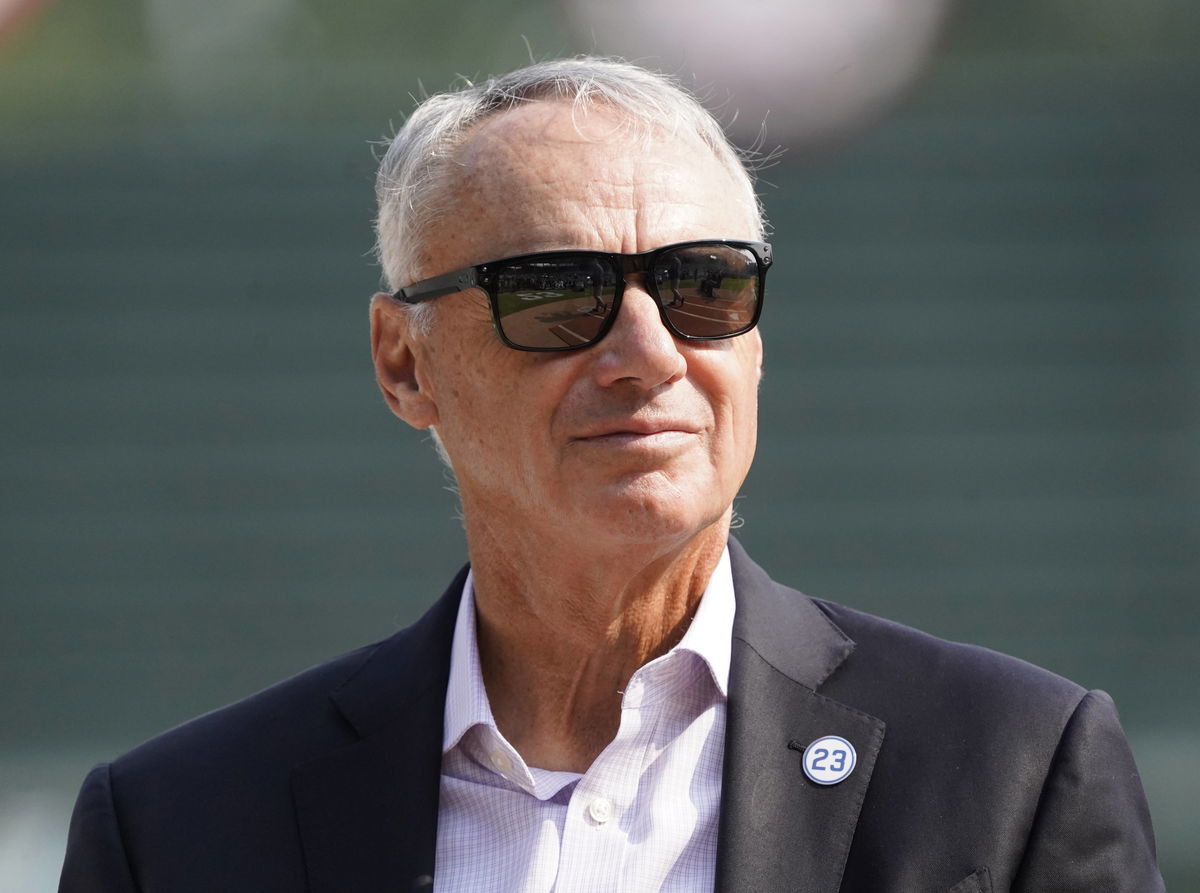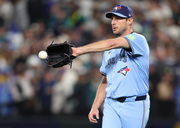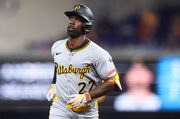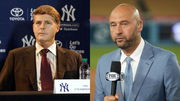
Imago
MLB, Baseball Herren, USA Chicago Cubs press conference, PK, Pressekonferenz Aug 1, 2025 Chicago, IL, USA Baseball Commissioner Rob Manfred announces Major League Baseball and the Chicago Cubs will host the 2027 All Star game at Wrigley Field. Chicago Wrigley Field IL USA, EDITORIAL USE ONLY PUBLICATIONxINxGERxSUIxAUTxONLY Copyright: xDavidxBanksx 20250802_cec_bb6_001

Imago
MLB, Baseball Herren, USA Chicago Cubs press conference, PK, Pressekonferenz Aug 1, 2025 Chicago, IL, USA Baseball Commissioner Rob Manfred announces Major League Baseball and the Chicago Cubs will host the 2027 All Star game at Wrigley Field. Chicago Wrigley Field IL USA, EDITORIAL USE ONLY PUBLICATIONxINxGERxSUIxAUTxONLY Copyright: xDavidxBanksx 20250802_cec_bb6_001
Baseball’s biggest threat isn’t an empty stadium or a blown TV deal—it’s stubbornness disguised as strategy. MLB, under Rob Manfred’s watch, has mastered the art of pretending everything is fine while the numbers whisper otherwise. Instead of embracing innovation, the league clings to tradition as if nostalgia prints money. The irony? What Manfred dismisses as sideshow entertainment may actually hold the ticket to MLB’s survival.
Watch What’s Trending Now!
In the August 28 The Athletic article, Evan Drellich talked about how the Banana Ball is picking up pace and quoted Jesse Cole, owner of the Banana Ball, and some MLB officials. Cole said, “I have Little Leagues reaching out every day… They don’t want to play regular baseball… I believe Banana Ball will do the same [as UFC].” To this, MLB Deputy Commissioner for business and media Noah Garden said, “I don’t view it at all competitive to what we’re doing… To me, one’s a league and one’s an exhibition… They’re an entertainment product.”
Major League Baseball has long insisted that entertainment leagues like the Bananas are no real competition, yet attendance figures and financial reports quietly suggest otherwise. The Savannah Bananas are owned and operated by Fans First Entertainment, which is a privately held company. And as per Huddle Up Substack, it is possible that the team is worth as much as $1 billion.
ADVERTISEMENT
On the other hand, MLB continues chasing billion-dollar media contracts and maximizing ticket prices while fans feel increasingly alienated and underserved. Meanwhile, the Bananas prioritize affordable access, direct fan engagement, and viral marketing strategies that MLB has consistently ignored.
The Bananas’ revenue model proves that success is not always about maximizing profits but maximizing loyalty. They sell out MLB and NFL stadiums while refusing “stupid” investment offers that could compromise their vision. At the same time, MLB continues on shaky revenue ground, staring at contentious labor relations and potential lockout scenarios. As the Bananas pursue “a billion fans,” the contrast highlights how dangerous MLB’s financial obsession may become.
A partnership between MLB and the Bananas could redefine baseball’s future, blending tradition with innovation to secure longevity. MLB stadiums already benefit from Bananas sellouts, showing the demand for a fresher, fan-first experience across markets. Instead of dismissing them as novelty acts, Major League Baseball could embrace collaboration that introduces energy, creativity, and new audiences. This partnership would help MLB stabilize its wavering revenues while modernizing the fan experience that is slipping away.
ADVERTISEMENT
If MLB officials continue ignoring these lessons, they risk watching fans migrate toward a cheaper, livelier alternative. The Bananas have proven that charisma, connection, and spectacle can draw millions without billion-dollar infrastructure or television contracts. For MLB, pretending there is no competition is less a strategy and more a dangerous denial of growing trends. The future of the sport may depend on MLB realizing money alone cannot protect its place forever.
The clock is ticking, and this time, nostalgia won’t cover the tab.
ADVERTISEMENT
Even if MLB doesn’t want a partnership, they can learn so much from the Banana League
MLB can learn plenty from the Savannah Bananas, who’ve made baseball feel fresh again. Their fan-first approach, transparent pricing, and engaging pregame activities show how connection builds loyalty. Unlike MLB’s rigid schedules and limited access, Bananas give fans lasting memories beyond nine innings. The result is sellout crowds, viral attention, and excitement that Major League Baseball often struggles to replicate consistently.
If MLB embraced similar strategies, the league could rejuvenate its relationship with younger generations of fans. Opening gates earlier, marketing player personalities, and encouraging authentic interactions would bridge the gap between stars and supporters. Creative scheduling could make baseball more family-friendly, ensuring games fit into modern entertainment demands. These shifts would keep fans engaged year-round, preventing baseball from feeling outdated compared to new alternatives.
ADVERTISEMENT
Rule innovations could also inject drama into every inning, much like Banana Ball’s unique format. MLB’s pitch clock proved fans welcome change, so why stop experimenting with pace-of-play adjustments? Adding exciting twists would showcase athleticism, enhance competitiveness, and reintroduce unpredictability to a sport increasingly dominated by predictability. Done right, these improvements could define baseball’s future, ensuring it thrives rather than simply survives.
Top Stories
Max Scherzer’s “Unfinished Business” Sends Clear Signal to Blue Jays After Honest Plea to All 30 MLB Teams

“What Has He Won?” — Mets Legend’s David Stearns Backing Backfires as Fans Unleash Harsh Criticism

Aaron Judge Hilariously Dissed by Yankees’ 5X World Series Champ After 3rd MVP Win

Andrew McCutchen’s Pirates Exit Inevitable After Being Snubbed at Pittsburgh Fanfest – Report

Derek Jeter Makes Feelings Known About Hal Steinbrenner’s Ownership as Bronx Fans Give Up on Yankees

At some point, Rob Manfred and MLB must decide whether tradition is worth bleeding fans to novelty. If the Bananas can pack Camden Yards while the Orioles struggled in October, maybe the joke isn’t on them—it’s on MLB.
ADVERTISEMENT
ADVERTISEMENT
ADVERTISEMENT